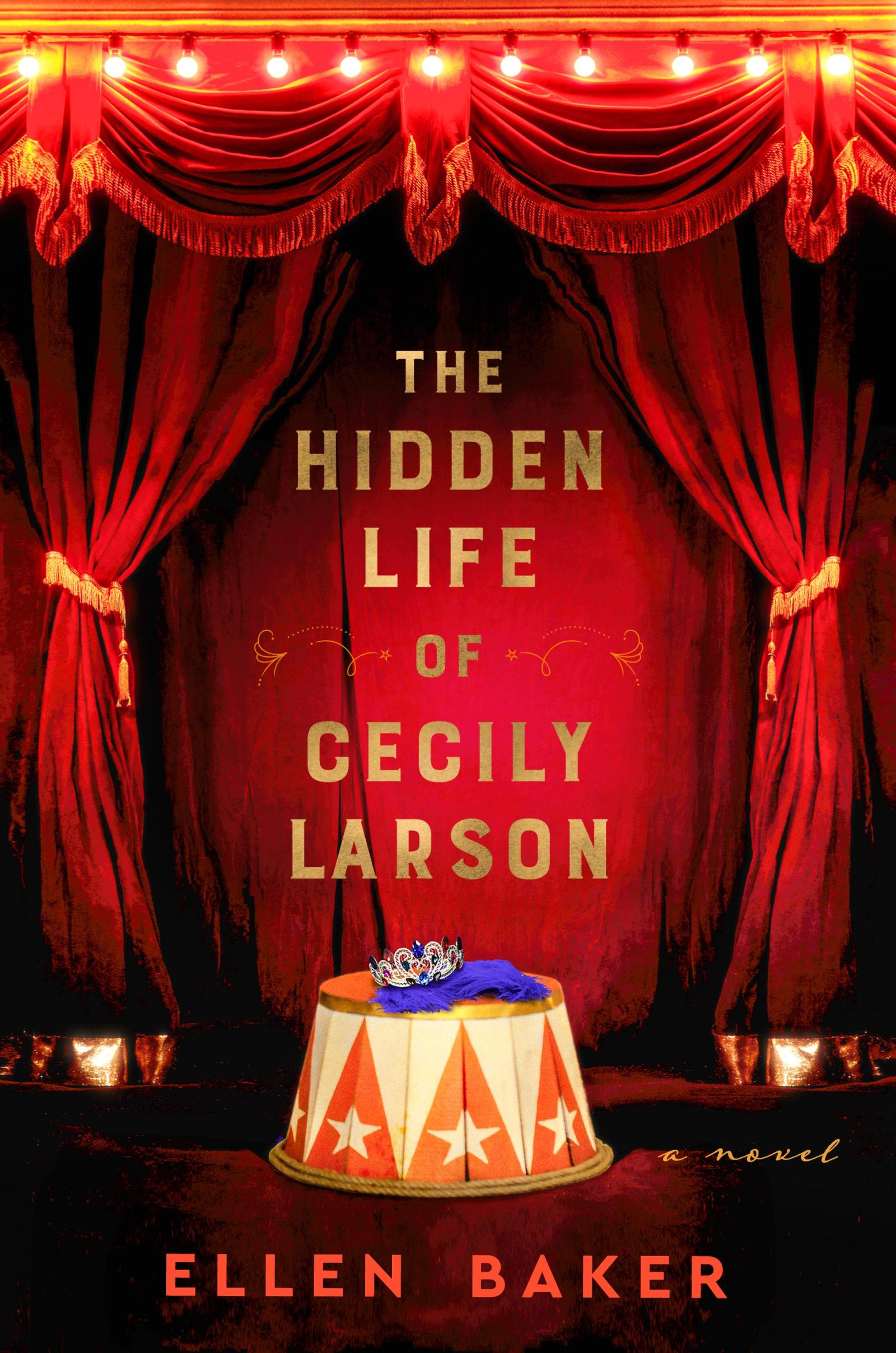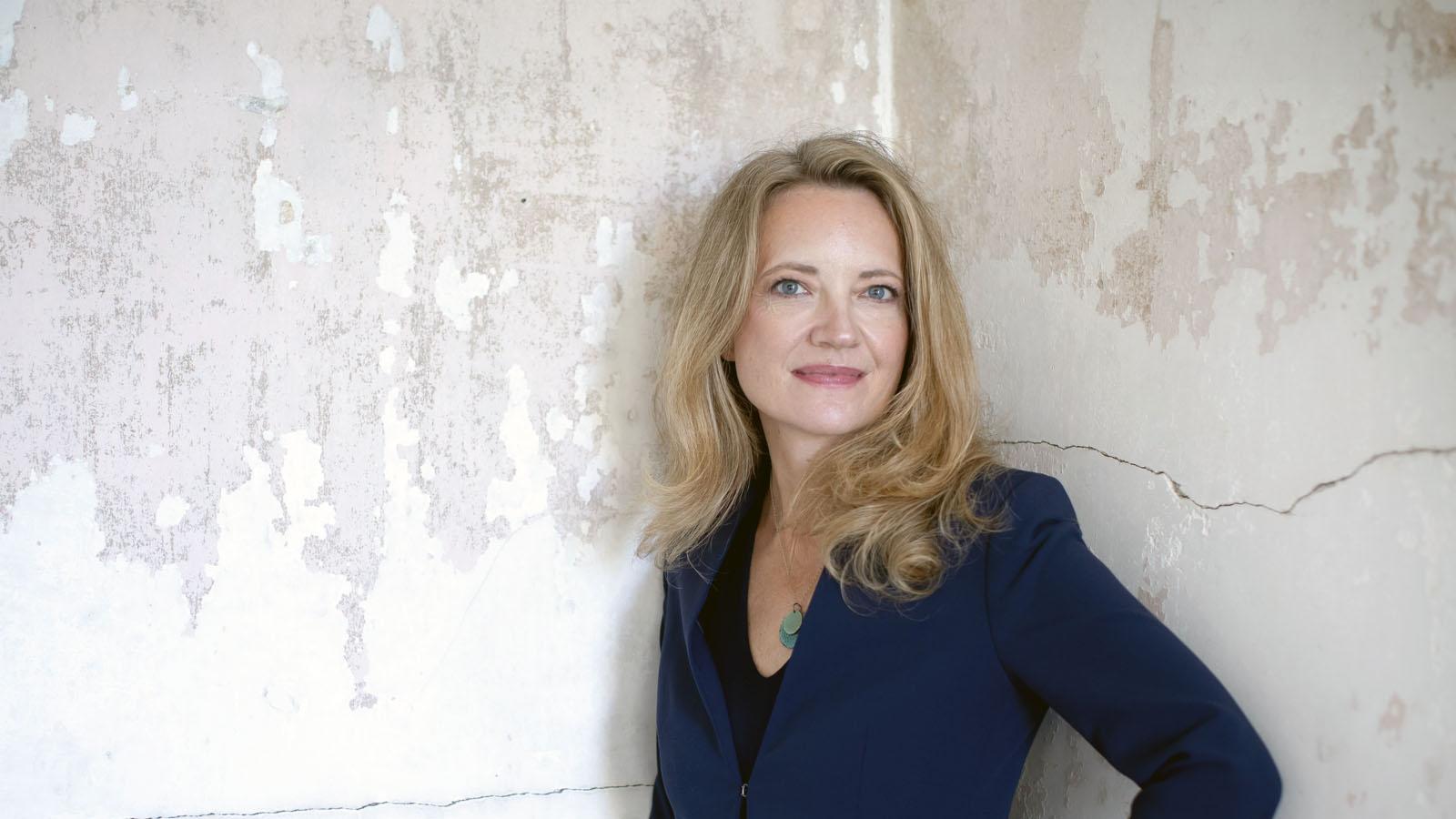Ellen Baker ’97 is enjoying the moment.
The Lawrence University alumna’s latest novel, The Hidden Life of Cecily Larson, arrived in February with significant fanfare. People magazine featured it as one of its Best New Books; it was named an Indie Next pick for March by the American Booksellers Association; GoodReads called it one of winter’s most anticipated books; BookBub put it on multiple best-of lists, including Best Historical Fiction of 2024.

The novel, from Mariner Books, is an emotional rollercoaster that spans more than 90 years, from a heartbreaking opening scene at an orphanage in Chicago in 1924 to the unveiling in 2015 of jarring secrets held for a lifetime in a small northern Minnesota town. The story of Cecily is one of pain, cruelty, love—forbidden and otherwise—and hope.
While Baker’s first two novels, Keeping the House (2007) and I Gave My Heart to Know This (2011), both from Random House, put her on the literary map, they did not generate quite this level of enthusiasm.
“To know that book editors were noticing it, readers were noticing it, people were anticipating it, that was really exciting,” Baker said from her home on the coast of Maine.
The new novel falls into the genre of historical fiction—as did her first two novels—and the roots of Baker’s history-focused storytelling can be found in her experiences as an undergraduate at Lawrence three decades ago, when the psychology major with a secret desire to write novels fell in love with American history.
“At Lawrence, I got so fascinated by my American history classes, my American literature classes,” she said.
While finishing her psychology major, she worked an internship with the Outagamie County Historical Society in Appleton, and she took an independent study course in fiction writing during her senior year—all while filling spiral notebooks with ideas for a novel.
“I was always drawn toward writing novels, but at the time I was looking for a more practical career path,” Baker said. “I think I was looking for something that wasn’t so close to my heart, because I was also so shy that I didn’t tell anybody I wrote novels in notebooks. A few close friends knew but it was otherwise a secret.”
Hone your craft in small, intimate workshop settings within writing courses that are part of the English major's creative writing track.
After graduating from Lawrence, Baker took an internship in Tennessee working as a living history interpreter—dressing in costume, quilting by hand, cooking on a wood stove, and finding other ways to bring American history to life. She completed a master’s degree in American studies at the University of Minnesota, then worked at a World War II museum in Superior, Wisconsin.
All of it built to her next chapter. She eventually went to work for an independent bookstore while beginning to scratch that itch as a novelist. Four years later, Keeping the House, set in the 1950s, was released.
“All the pieces of my Lawrence experience and my master’s degree all dovetail into becoming a historical novelist,” Baker said. “The focus on psychology gave me a different inroad. A lot of people as fiction writers go get an MFA, which is a fabulous path to take if that’s your right path. For me, I wasn’t ready at the time to claim that part of myself, so I think I actually have a really different perspective in terms of how I look at characters or how I look at history—because of training in things other than how to write fiction. I have the training in how to look at the world from those different lenses. I think it’s been a very valuable thing to have.”
The Hidden Life of Cecily Larson comes 13 years after Baker’s previous novel—she launched an online teaching course for would-be novelists and did freelance writing and editing in the meantime. It was in early 2021 that she redirected her attention to a next novel, wanting to write a story about the keeping of a decades-long secret in a small town, all of it eventually unraveling through modern DNA testing.
“I am fascinated by all the stories I’ve read of people who have had DNA surprises in their lives and how that upends their sense of themselves, their identities, and what happens as a consequence of those surprises,” Baker said.
She wanted to weave a story that would interplay multiple storylines over long passages of time.
“I started there and wrote the story going back and forth in time because I was interested in playing with the relationship between past and present,” Baker said. “Obviously, in this book, the past has a direct effect on the present.”
She wrote the initial draft in eight months, far faster than she’d usually get through a first draft.
“I usually take a number of years to write a draft,” Baker said. “I can’t explain why it happened. It just felt like it was a story that already happened, and I was just writing it down. I didn’t struggle with how to make it make sense. It just felt like it was all there.”
Her new literary agent sold the book to Mariner Books, which kicked off an intense editing process. By last summer, Baker was already receiving glowing feedback from authors she admires. And by fall the book was starting to show up on best-of lists in advance of its February release.
Baker likes where she’s at as she gains notice as a novelist and builds momentum as a teacher and entrepreneur. She’s growing her online teaching—providing start-up guidance to novelists-to-be—while considering options for a next novel. She’s also working on a screenplay, and her agent is having conversations with studios about taking The Hidden Life of Cecily Larson to the big screen.
“I’ve been figuring out how to support myself with writing and independent projects,” Baker said. “I’ve learned a lot about myself along the way. Being my own boss and having the real estate of my brain completely available to think the thoughts I want to think, that to me is a very valuable thing. I think that is something I learned at Lawrence, or that I came to value at Lawrence. The privilege of intellectual freedom, the privilege to think about the things you want to think about, the privilege to pursue the lines of inquiry you want to pursue. For me, that line of inquiry is simply how to understand the human experience, how to convey human experience, how to bring the past to life in ways that possibly can help us to not repeat the same mistakes.”




